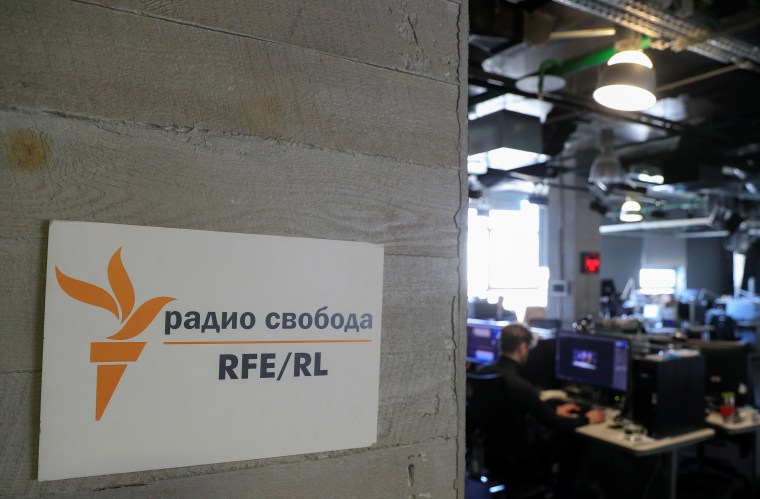New York, February 21, 2024—Russian authorities must stop harassing U.S. Congress-funded broadcaster Radio Free Europe/Radio Liberty and cease obstructing the work of media outlets by labeling them as “undesirable,” the Committee to Protect Journalists said Wednesday.
On Tuesday, the Russian Ministry of Justice added RFE/RL to its register of “undesirable” organizations after the Russian general prosecutor’s office designated it such on February 2, according to the Russian Ministry of Justice register, media reports, and a Tuesday statement by RFE/RL.
Organizations that receive the “undesirable” classification are banned from operating in Russia, and anyone who participates in them or works to organize their activities faces up to six years in prison and administrative fines. The designation also makes it a crime to distribute the outlet’s content or donate to it from inside or outside Russia.
“Russian authorities’ drive to persecute Radio Free Europe/Radio Liberty runs deep, but so does the outlet’s commitment to delivering unbiased information to the Russian people,” said Gulnoza Said, CPJ’s Europe and Central Asia program coordinator. “Russian authorities should immediately repeal their legislation on ‘undesirable’ organizations and stop banning any reporting that contradicts the government’s narrative.”
“This is just the latest example of how the Russian government views this type of truthful reporting as an existential threat, and that’s truly alarming,” RFE/RL President Stephen Capus said in a statement on Tuesday.
Since 2021, Russian authorities have labeled more than a dozen media organizations “undesirable,” including exiled broadcaster Dozhd TV (TV Rain), independent news outlets Meduza, Novaya Gazeta Europe, as well as investigative outlets iStories, The Insider, Bellingcat, and Proekt.
The Russian Ministry of Justice added RFE/RL to its register of so-called “foreign agents” in 2017, making it the first media organization to be labeled as such, along with Voice of America.
Authorities froze the bank accounts of the Russian branch of RFE/RL in May 2021 and a court declared it bankrupt in March 2023, following the broadcaster’s refusal to pay fines issued for noncompliance with the country’s foreign agent law.
Russian authorities have also labeled more than 30 RFE/RL journalists as foreign agents, and a number of the broadcaster’s affiliated websites were blocked after Russia’s full-scale invasion of Ukraine.
In October 2023, Russian authorities detained Alsu Kurmasheva, an RFE/RL editor and dual U.S. and Russian citizen, on charges of failing to register as a foreign agent. A new charge of spreading “fake” information about the Russian army was later brought against her. A Russian court upheld Kurmasheva’s arrest on Tuesday, and she will remain detained until at least April 4.
CPJ emailed the Russian Ministry of Justice for comment but did not receive a response.
